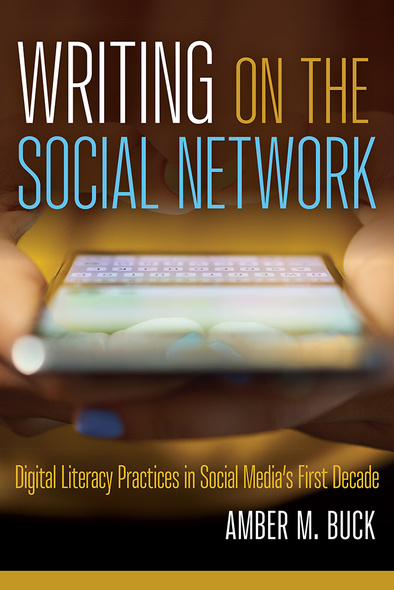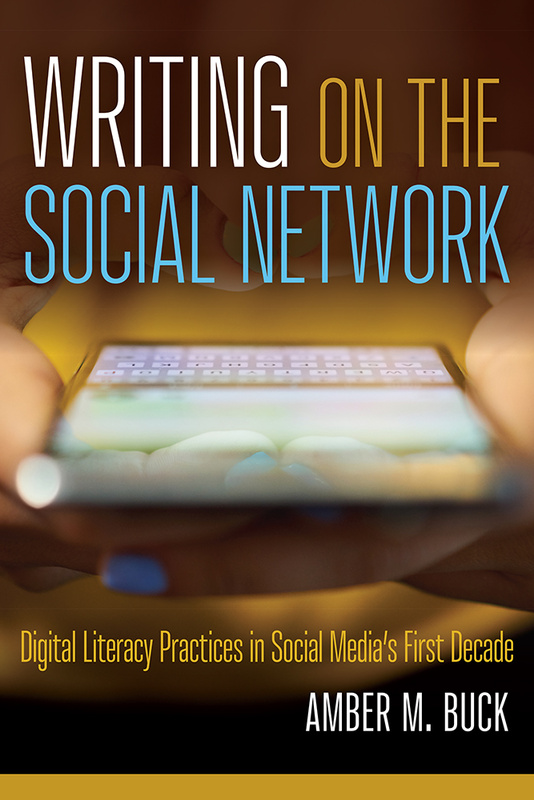Writing on the Social Network
Digital Literacy Practices in Social Media's First Decade
Utah State University Press
Writing on the Social Network builds upon traditions in longitudinal writing research to present a longer view of the impact of social media technologies on individuals’ literacy practices. Amber M. Buck considers user experiences and digital literacy practices that developed on these platforms in the first decade of social media and calls for a larger acknowledgment of social network sites as locations where individuals engage in sophisticated and literate activity.
Through qualitative case study research, Buck explores how literate activities on social network sites coalesced around three areas crucial for writing in digital environments: (1) a heightened awareness of audience and an ability to tailor messages to specific audiences; (2) an understanding of how personal data is collected and circulated in online spaces; and (3) a means through which to use the first two skills for self-promotion and self-presentation in both personal and professional settings. She identifies several distinct literacy practices and strategies used by participants to communicate effectively and addresses how these strategies can help writing researchers and internet scholars understand the impact of social media’s first decade and can inform the ways they will research and understand social media’s second decade.
Social media platforms represent important locations where the different influences on writing become visible. Writing on the Social Network is a close study of the rich literate practices individuals have engaged in on social network sites over the last ten years that allows for a better understanding of the role social media plays in shaping digital literacy.
Through qualitative case study research, Buck explores how literate activities on social network sites coalesced around three areas crucial for writing in digital environments: (1) a heightened awareness of audience and an ability to tailor messages to specific audiences; (2) an understanding of how personal data is collected and circulated in online spaces; and (3) a means through which to use the first two skills for self-promotion and self-presentation in both personal and professional settings. She identifies several distinct literacy practices and strategies used by participants to communicate effectively and addresses how these strategies can help writing researchers and internet scholars understand the impact of social media’s first decade and can inform the ways they will research and understand social media’s second decade.
Social media platforms represent important locations where the different influences on writing become visible. Writing on the Social Network is a close study of the rich literate practices individuals have engaged in on social network sites over the last ten years that allows for a better understanding of the role social media plays in shaping digital literacy.
‘Writing on the Social Network traces the development of new literacy skills that every writing teacher should begin to take seriously if we understand our role as preparing students for the literate lives they will lead beyond our classrooms. A welcome addition to a rich scholarly conversation about the nature of writing activity and the intersection of writing and technology.’
—William Hart-Davidson, Michigan State University
Amber M. Buck is associate professor of English at the University of Alabama, where she teaches courses in digital rhetoric and multimodal composition and serves as the coordinator for the Composition, Rhetoric, and English Studies (CRES) program. She is coeditor of Netflix at the Nexus, and her work has been published in Computers and Composition, Kairos, and Research in the Teaching of English, as well as in several edited collections.






